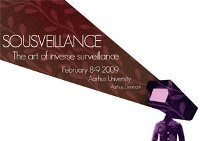Mobile Nightmare on Life Street
I missed the computer revolution by a few years. True, I could have caught up if I had really wanted to (this statement is not entirely true) but I was in the wrong place and Madame Fortune had swung me on a different path. I tried to find and correct the missing pieces in the years to come and to a great extent I was successful. Barring programming, I can almost do anything on/with a PC. Then came the next revolution: the mobile phone. I did not like it very much. Maybe this can be attributed to my age at that time. I do not remember where I read it but it was something like this: humans are quick and eager to grasp (and use) innovations only up to a certain age. Then, we tend to be more conservative. So, apart from its basic and originally intended use, i.e. talking, I hardly use a mobile phone. I usually find it impractical. I did not make a fuss or give a second thought about it until I decided to observe how people and friends around me used their computers. Their interactio...



